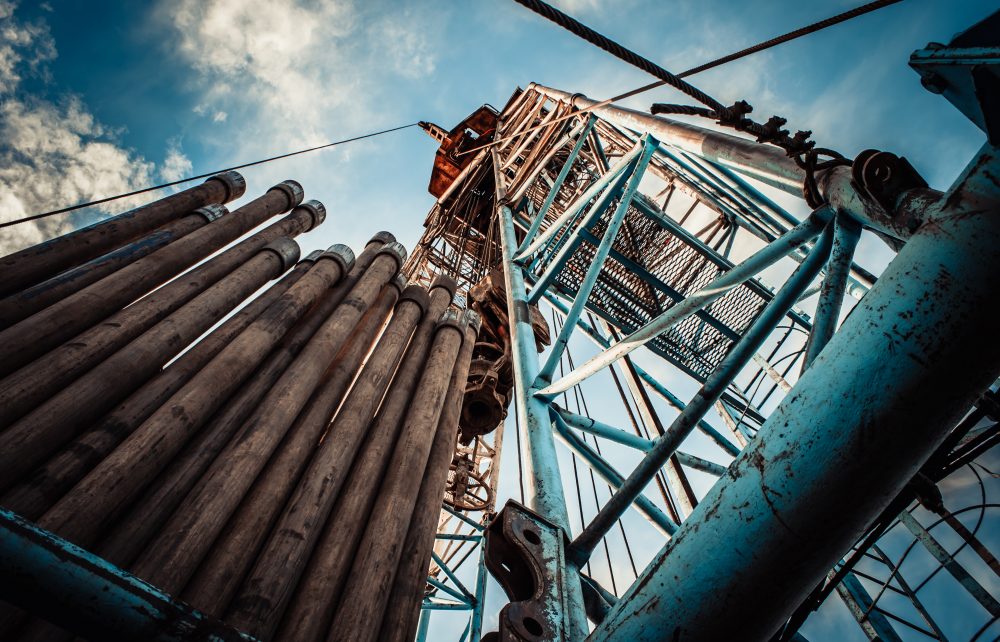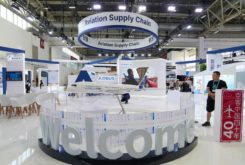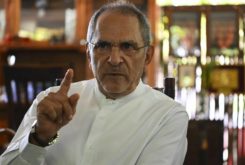In April, the government of Timor-Leste completed the purchase of the 30% and 26.56% stakes held in the Greater Sunrise gas and condensate scheme held by ConocoPhillips and Shell respectively. The two partners signalled their desire to withdraw from the venture because of Dili’s determination to see the project’s LNG plant developed on its territory, rather than in Australia’s Northern Territory, as favoured by the original consortium. The big challenge for Dili now is raising its 56% share of total investment costs, as it insists that it will not tap its Petroleum Wealth Fund.
The transactions covered ConocoPhillips’ and Shell’s interests in production sharing contracts 03-19 and 03-20 within the Joint Petroleum Development Area that was created under the Timor Sea Treaty, plus associated governance agreements and retention leases NT/RL2 and NT/RL4 issued by the Australian government. The remaining equity in the venture is held by Australian firm Woodside with a 33.44% stake and Japan’s Osaka Gas with 10%.
It remains to be seen whether Woodside will continue to act as operator of the entire venture. Woodside chief executive Peter Coleman has suggested that his company could develop the upstream element of the project but not the pipeline or the LNG plant.
ConocoPhillips, which received US$350 million for its stake, was keen to emphasise that it bore the Timorese government no ill-feeling. In a statement, the U.S. firm’s executive vice president and chief operating officer, Matt Fox, said: “We are pleased to complete this transaction with the government of Timor-Leste. ConocoPhillips recognises the importance of the Greater Sunrise Fields to the nation of Timor-Leste, and this sale gives them a significant working interest in this important development.” Shell, which received US$300 million for its equity, adopted a similarly conciliatory position.
Greater Sunrise comprises two gas and condensate fields, Sunrise and Troubadour, which lie about 150km south-east of Timor and 450km north-west of Darwin in the Northern Territory. They were discovered in 1974 but development was held up by territorial disputes between Indonesia, Australia and later the independent nation of Timor-Leste. The fields hold an estimated 5.1 trillion cu ft of natural gas and 226 million barrels of condensate. The proposed LNG project is well placed geographically to target the world’s biggest LNG markets, in Japan, South Korea and China.
Who will finance it?
Capital costs are estimated at up to US$12 billion, presumably for a two train LNG project of about 10 million tonnes/year production capacity, while state oil company Timor Gap predicts revenues of US$28 billion, based on an average oil price of US$62.5 a barrel, but the size of the venture is not set in stone. The big question will be how Dili intends to finance its share of development costs. Given the risks involved and uncertainty over who will operate the plant, commercial loans seem out of the question.
The most obvious option seems to be Chinese investment, particularly given Beijing’s current expansive international strategy and its rapidly growing appetite for LNG. Various accounts suggesting concrete Chinese interest have been reported but none have been substantiated. Even if Beijing were prepared to finance the project, a partner with experience in developing LNG technology would be needed and this is unlikely to be Chinese.
Timor-Leste’s special representative on petroleum matters, Kay Rala Xanana Gusmão, said: “The completion of the acquisitions marks the end of a process that commenced shortly after the signature of the Maritime Boundaries Treaty between Australia and Timor-Leste. Timor Gap’s acquisition of this 56.56% will allow discussions to progress between the Sunrise Joint Venture and the Australian and Timor-Leste authorities on the new Greater Sunrise production sharing contract that will govern the fields after the entry into force of the Treaty.”
Most recently, the project delays resulted from a dispute between Dili on the one hand and Australia and the project consortium on the other, over where to build the LNG plant that would be used to process gas from the fields. There is little local demand for gas in northern Australia or Timor so export in the form of LNG is considered the only viable option. The government of Timor-Leste has remained steadfast in its determination to ensure that the plant is built on the south coast of the island, with a pipeline needed to transport the gas from the fields to the plant.
Canberra and the oil and gas companies involved strongly favoured siting the project in Australia’s Northern Territory. Although three times as far, this option could take advantage of the existing pipeline between the Bayu Undan field and the Northern Territory, particularly as this field is expected to become exhausted just as Greater Sunrise comes on stream. It would also allow the gas to be liquefied at the existing Darwin LNG plant. Moreover, this would avoid the engineering difficulties inherent in building a pipeline across the deep chasm that lies in the ocean floor to the south of Timor.
A floating LNG (FLNG) vessel has also been considered but a floating, production, storage and offloading (FPSO) vessel seems a more likely option. The latter would be used to separate condensate and natural gas production and then transfer the condensate to waiting vessels. The gas would still need to be piped onshore for liquefaction.
Dili would have been entitled to 80% of the revenue from the project allocated to the Timorese and Australian governments, if production had been piped to Australia, but this figure will fall to 70% if a plant is eventually built at Beaço on the south coast of Timor-Leste. Dili hopes that the project can kickstart industrial development in the country, while the development consortium fears that the lack of existing industrial and technical capacity in Timor-Leste, coupled with limited supply chains, will prove detrimental to its smooth operation.
Swift development?
The Timorese Prime Minister Taur Matan Ruak said that he would hold talks with the other Greater Sunrise consortium members on the “swift” development of the project, including on the development concept for the offshore fields and the construction of the LNG plant. In a statement, the government of Timor-Leste said: “Once the maritime boundary treaty between the two states comes into force the Greater Sunrise fields will be included in the Greater Sunrise Special Regime Area and subject to joint exercise of jurisdiction under the new Treaty.”
Dili’s desire to see the project developed will have been underlined by the country’s economic frailty. GDP fell by 4.5% in 2017 and only recovered by 0.8% last year because of the resumption in public spending after the damaging political stalemate. When an IMF team visited Timor-Leste in March to complete an Article IV consultation, it reported: “Little progress in reducing public sector dependence and creating more jobs in the private sector will put more pressure on public finance, long-term fiscal sustainability and deteriorating labour market conditions”.
The public spending deficit reached an incredible 19% of GDP in 2017 but this could be wiped out by the step increase in revenue that Great Sunrise would provide. However, the IMF team noted that the development of Greater Sunrise “poses a significant long term risk” for the country. Timor-Leste is regarded as the second most oil-dependent country in the world.
Bayu Undan revenues
Relations between Australia and Timor-Leste continue to be affected by Canberra’s behaviour towards its much smaller neighbour. The two countries signed a maritime boundary agreement in March 2018 that settled their long-running territorial dispute and which should pave the wave for the development of the Greater Sunrise fields.
However, the Australian parliament has still not ratified the treaty, allowing it to continue to claim a 10% share of oil revenue from production on the Bayu Undan field, which lies in an area now regarded as Timorese sovereign territory. The Petroleum Wealth Fund, which contained US$16 billion at the end of last year, is fed by revenue from Bayu Undan. Estimates of the amount of money involved up to May 2019 are in the range of US$60-100 million, which Dili wants Canberra to return to Timor-Leste.
The ratification process has been frozen because of Australia’s election campaign. Former president and Nobel Laureate Jose Ramos-Horta told journalists: “We are losing, on a monthly basis, millions of dollars, so I hope that Australia really consider in good faith [and] back pay the amount due to Timor-Leste as of the signing of the agreement in New York…it is strange to me that we have been waiting over one year since the signing of the maritime boundary agreement.” However, he said that he did not think that Canberra was deliberately postponing ratification on financial grounds and said that he thought Australia would reimburse “every cent it wrongly received”.
Under the terms of the treaty, Timor-Leste cannot claim for the repayment of money paid to Australia from fields in parts of the Timor Sea now considered Timorese territory. However, many of those closely involved in the case believe that Canberra has a moral obligation to repay income from Bayu Undan accrued since the treaty was signed last March. Three other fields in territory now regarded as Timorese – Bufallo, Laminaria and Coralina – have already been exhausted.
Australia’s shadow minister for foreign affairs, the Labor Party’s Penny Wong, said: “It’s a pity that it has not as yet been finalised legally, in terms of ratification, and we would hope that could occur as soon as possible after the election”, but refused to guarantee that her party would repay all the money if it won the election. There have already been well publicised allegations that Australia spied on Timorese officials during negotiations over Greater Sunrise.




